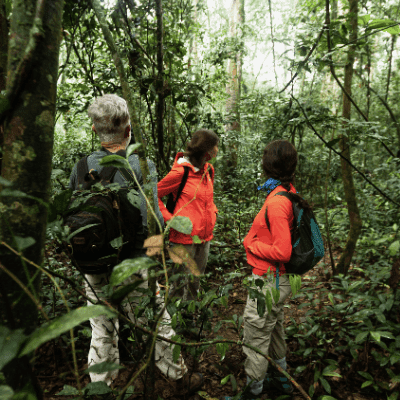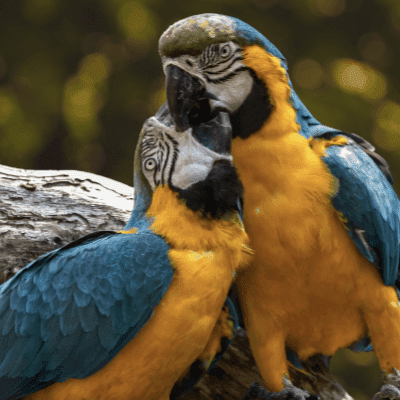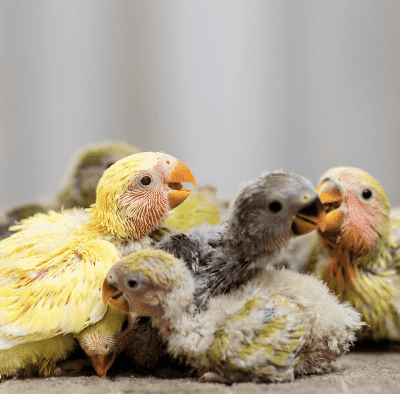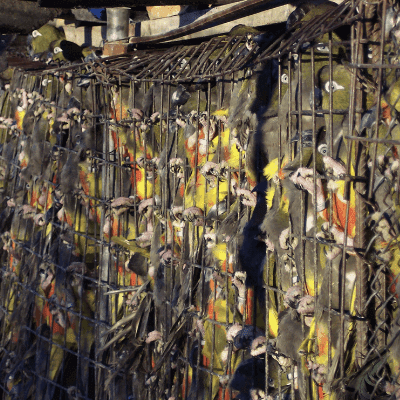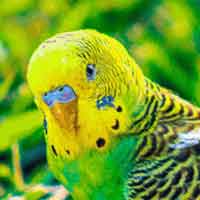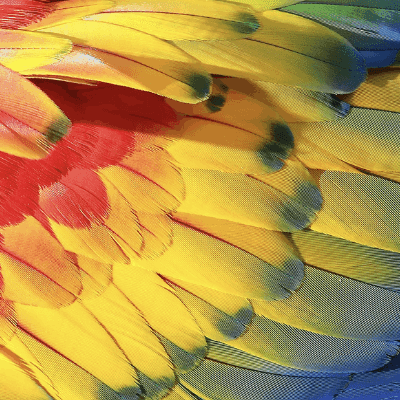Position Statement: Hand-feeding
One of the recurrent debates in parrot keeping is the question of whether to hand-feed baby parrots or to let the parent birds raise them. Some claim that hand-feeding a young parrot will lead to a happier pet bird which is more tame and more strongly bonded with its caregiver. Others have asserted that allowing the parents to raise their own young will produce healthier and better-adjusted birds, which themselves will make better parents later in life. Not surprisingly, there is some truth to both assertions, and of course there are exceptions to every rule.
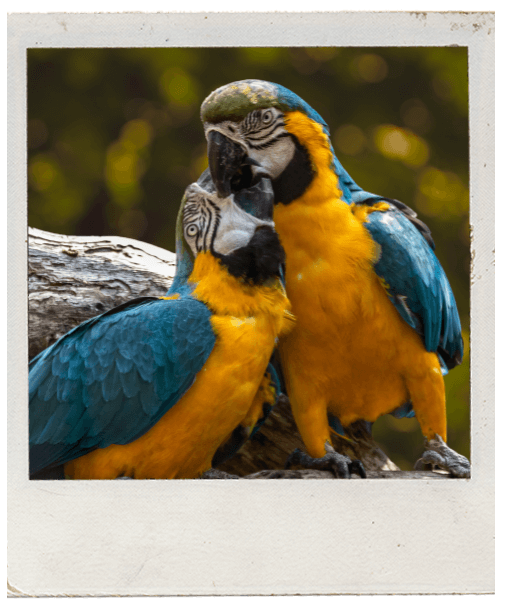
"... with a few important caveats, their (baby parrots) own parents are uniquely qualified for the job."
In principle, the World Parrot Trust supports husbandry choices for parrots which most closely reflect what these birds have experienced through millions of years of evolution.
In the case of feeding baby parrots, with a few important caveats, their own parents are uniquely qualified for the job.
The importance of parental nurturing
If you ever get the privilege to watch the process in person, you will find there is a lot more going on inside a parrot nest than just the deposit of food from adult to chick. There are complex interactions between the chick and its mother and father, and of course, for most parrots, among siblings as well. In the wild, these interactions go even further to include insects in the nest litter, or bats hanging from the top of the cavity, and other animals coming and going from the cavity. In one of our studies of a Caribbean Amazon, a nest camera revealed a chick perched happily on the end of an iguana’s tail!
Based on what we know about the development of other complex, intelligent, and slow to mature species, these early experiences, particularly relations with parents and siblings, are likely to be very important to the healthy development and successful fledging of the chicks. It’s nearly impossible for a hand-rearer to mimic such complex interactions throughout the day and night, whereas a parrot parent will very often do an outstanding job (particularly, it turns out, if it was too was raised by its own parents).
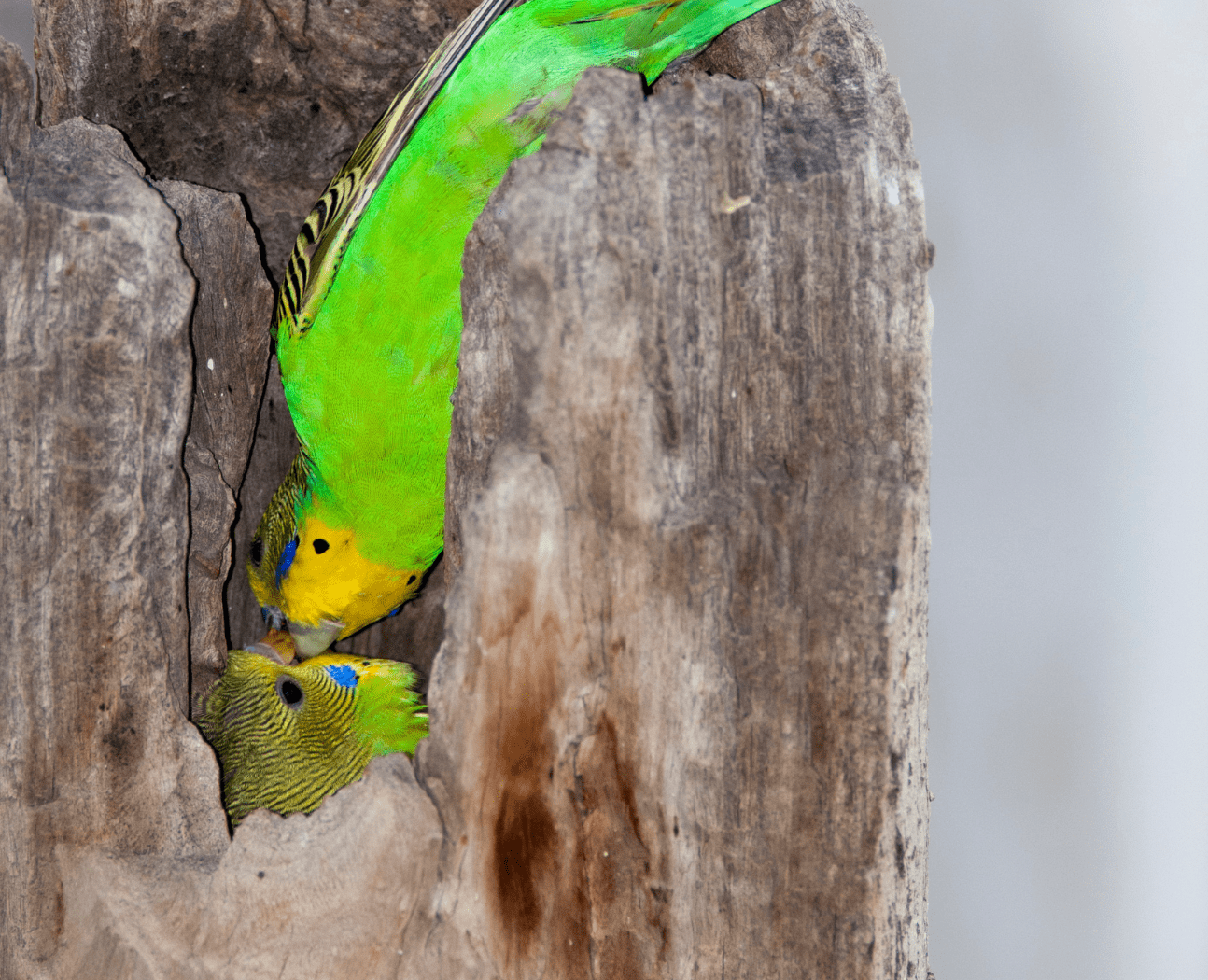
© John Carnemolia, Getty Images
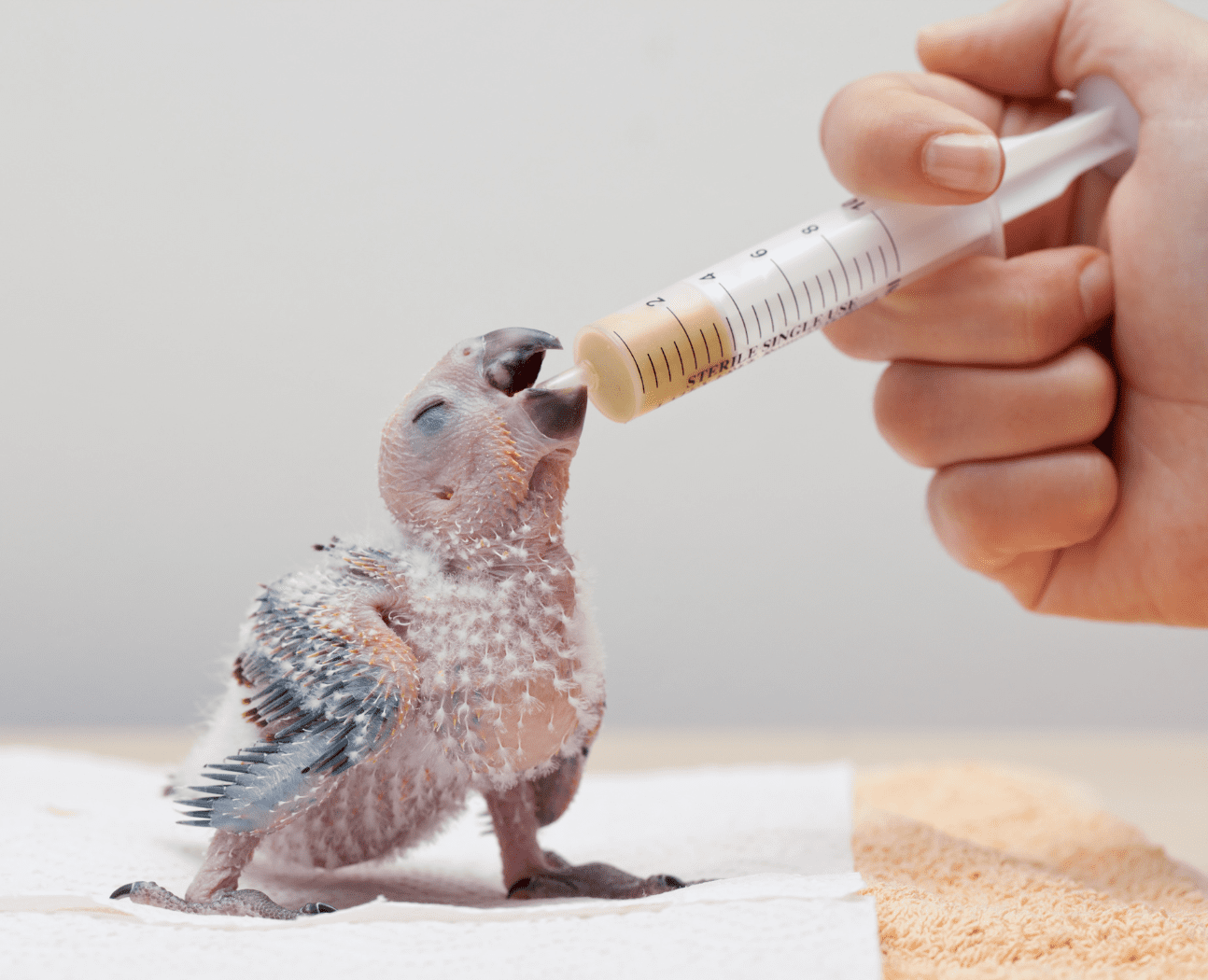
© DuxX, Getty Images
The positives of hand-rearing
Like nearly everything else with parrots, the reality isn’t so black and white. In the case of hand-rearing, there are of course instances when one or both parents, for whatever reason, choose not to rear their chicks, or make parenting decisions which threaten the chicks' survival. In some cases, one of the parents is unable to care for the young. In these instances, very often it becomes essential for the chicks to be pulled from the nest and hand-fed, or left in the nest and given supplementary feeding. There is ample evidence that such birds, particularly if socialized well through fledging and independence, can grow to be happy and healthy parrots.
One final detail worth thinking about regardless of whether a parrot is hand-reared or parent-reared is that for nearly all parrot species, companion birds will consume a diet which bears only the faintest resemblance to what birds of the same species would eat in the wild. While of course this matters from a nutritional standpoint, there are other issues as well. One has to do with the phenomenally complex chemistry of wild tree seeds, fruits, buds, and bark, and the other has to do with their structure.
Studies of wild parrots which sample the foods in chicks’ crops generally find a complex and coarse collection of ingredients – whole seeds with hard shells, insects, bark, soil, and other contents, none of which one is likely to find in a companion chick’s crop whether it’s fed by a human or its parent. In light of this, not only should parrot parents rear their chicks whenever possible, caregivers should be providing the adult parrots with as diverse and complex a collection of foods as they can manage, which will enable the parents the choice to feed their chicks the best possible combination of foods.
In sum, there are advantages for both methods of raising chicks, but in general a parrot is the best parent for a parrot youngster.
